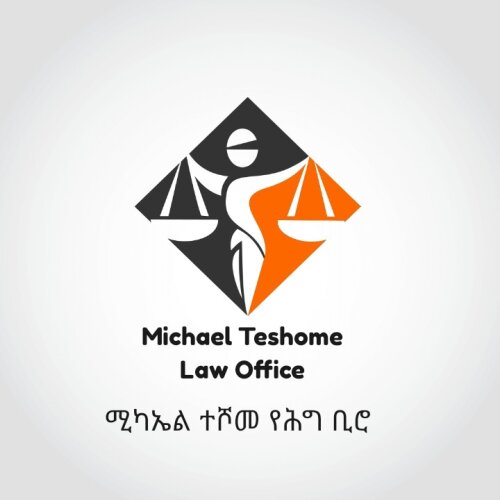Best Appeal Lawyers in Ethiopia
Share your needs with us, get contacted by law firms.
Free. Takes 2 min.
Or refine your search by selecting a city:
List of the best lawyers in Ethiopia
About Appeal Law in Ethiopia
In Ethiopia, the appeal process is an essential part of the judicial system. It offers a mechanism for reviewing the decisions made by lower courts to ensure justice and fairness in the administration of law. The right to appeal is enshrined in the Ethiopian legal system and allows parties in a legal proceeding to challenge court decisions they deem unfavorable. Appeals can be based on various grounds, such as legal errors, misinterpretation of the law, or factual inaccuracies. The Ethiopian Supreme Court and relevant regional courts have the authority to hear appeals, ensuring that legal decisions are consistent with the law.
Why You May Need a Lawyer
There are several situations where seeking legal advice on appeals is beneficial. If you believe a court decision was based on incorrect legal interpretations or factual errors, a lawyer can help you file an appeal. Lawyers can provide expert guidance on procedural rules and deadlines crucial for a successful appeal. Additionally, individuals facing complex cases involving intricate legal arguments or large amounts of evidence often require a lawyer's expertise to navigate the appeal process effectively. A lawyer can also help if the original trial was unfair due to judicial bias or procedural irregularities, ensuring that your rights are upheld.
Local Laws Overview
The appeal process in Ethiopia is governed by various legal codes, including the Ethiopian Civil Procedure Code and the Criminal Procedure Code. The Civil Procedure Code outlines the procedural rules for civil cases, detailing how appeals should be filed, the timelines involved, and the necessary documentation. The Criminal Procedure Code provides similar guidelines for criminal cases. Importantly, appeals must generally be filed within 30 days of the judgment in civil cases and within 15 days in criminal cases. Understanding these laws and procedural requirements is essential for anyone considering filing an appeal.
Frequently Asked Questions
What is the time limit for filing an appeal in Ethiopia?
Appeals in civil cases must typically be filed within 30 days of the court's decision, whereas appeals in criminal cases generally have a 15-day deadline.
Can all court decisions be appealed?
No, not all decisions can be appealed. Certain rulings, especially interim or procedural decisions, may not be eligible for appeal. Consulting a lawyer can help determine if your case qualifies.
What are common grounds for appeal?
Common grounds for appeal include legal errors, factual inaccuracies, procedural mistakes, or the discovery of new evidence that was not available during the initial trial.
How does the appeal process work?
The appellant files a notice of appeal, submits the necessary documentation and legal arguments, and then the appeal is reviewed by a higher court. The court may uphold, reverse, or remand the decision.
Is legal representation mandatory for an appeal?
While not mandatory, legal representation is highly recommended to navigate the complex appeal process and improve the chances of a successful outcome.
What happens if an appeal is denied?
If an appeal is denied, the lower court's decision remains in effect. In certain cases, further appeal to a higher court may be possible.
Can new evidence be introduced during an appeal?
Introducing new evidence during an appeal is generally not allowed unless it was previously unavailable and could significantly impact the outcome of the case.
How long does the appeal process take?
The duration varies based on the complexity of the case and court workload but can range from several months to over a year.
Is it possible to withdraw an appeal?
Yes, an appeal can be withdrawn, but it may involve formal procedures and consent from the opposing party, depending on the case stage.
What should I prepare before filing an appeal?
Gather all documents from the original trial, identify specific grounds for appeal, and consult a lawyer to formulate strong legal arguments.
Additional Resources
Several resources can assist you in navigating the appeal process in Ethiopia. The Ethiopian Bar Association provides guidance and legal resources. Governmental bodies such as the Ministry of Justice and regional courts offer information and procedural assistance. Organizations such as the Ethiopian Human Rights Commission can also be valuable for cases involving potential rights violations.
Next Steps
If you believe you need legal assistance with an appeal, consider organizing your documentation and consulting with an experienced lawyer. Start by contacting legal professionals who specialize in appeals to obtain an informed evaluation of your case and guidance on the next steps. It is also crucial to act promptly since appeals are subject to strict deadlines.
Lawzana helps you find the best lawyers and law firms in Ethiopia through a curated and pre-screened list of qualified legal professionals. Our platform offers rankings and detailed profiles of attorneys and law firms, allowing you to compare based on practice areas, including Appeal, experience, and client feedback.
Each profile includes a description of the firm's areas of practice, client reviews, team members and partners, year of establishment, spoken languages, office locations, contact information, social media presence, and any published articles or resources. Most firms on our platform speak English and are experienced in both local and international legal matters.
Get a quote from top-rated law firms in Ethiopia — quickly, securely, and without unnecessary hassle.
Disclaimer:
The information provided on this page is for general informational purposes only and does not constitute legal advice. While we strive to ensure the accuracy and relevance of the content, legal information may change over time, and interpretations of the law can vary. You should always consult with a qualified legal professional for advice specific to your situation.
We disclaim all liability for actions taken or not taken based on the content of this page. If you believe any information is incorrect or outdated, please contact us, and we will review and update it where appropriate.
Browse appeal law firms by city in Ethiopia
Refine your search by selecting a city.

















